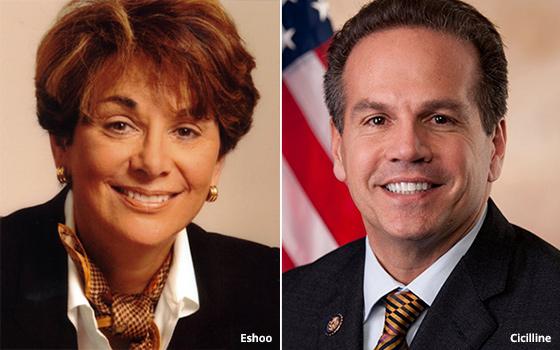
A new bill would prohibit large online platforms
from targeting political ads to users based on demographic or behavioral information, unless they have explicitly consented to receiving such ads.
The “Banning Microtargeted Political Ads Act,” introduced Tuesday by
Rep. Anna Eshoo (D-California), would continue to allow political ad targeting based on data about users' states, municipalities or congressional districts.
The measure would apply to all
websites, including social networks and search engines, that have collected or processed personal information of at least 50 million people.
The measure would continue to allow campaigns to
target electioneering ads based on data about users' states, municipalities or congressional districts.
The measure would apply to all websites, including social networks and search engines,
that have collected or processed personal information of at least 50 million people. It would also apply to ads for or against political candidates.
A separate bill, the “Protecting
Democracy from Disinformation Act,” slated to be introduced by
Rep. David Cicilline (D-Rhode Island), would allow political ads to be targeted based only on location, age and gender.
The proposed laws come nearly six months after Federal Election
Commission Chair Ellen Weintraub publicly called for large platforms to prohibit campaigns from using “microtargeting” techniques -- which involve serving ads to people based on the
combination of demographics, online behavior, voter registration record and other offline behavior.
She argued in a Washington Postop-ed that highly specific targeting enables campaigns to spread lies to
specific audiences, while avoiding the scrutiny that would come from a broader audience.
Citing a March Gallup poll, Eshoo's office stated Tuesday that 69% of Democrats and 75% of Republicans oppose microtargeted
political ads.
A study from 2012 found that an even higher proportion of people expressed dislike of highly targeted political ads.
That study, by University of Pennsylvania's
Annenberg School of Communications professor Joseph Turow, found that 86% of Americans said they didn't want to receive hyper-targeted political ads.